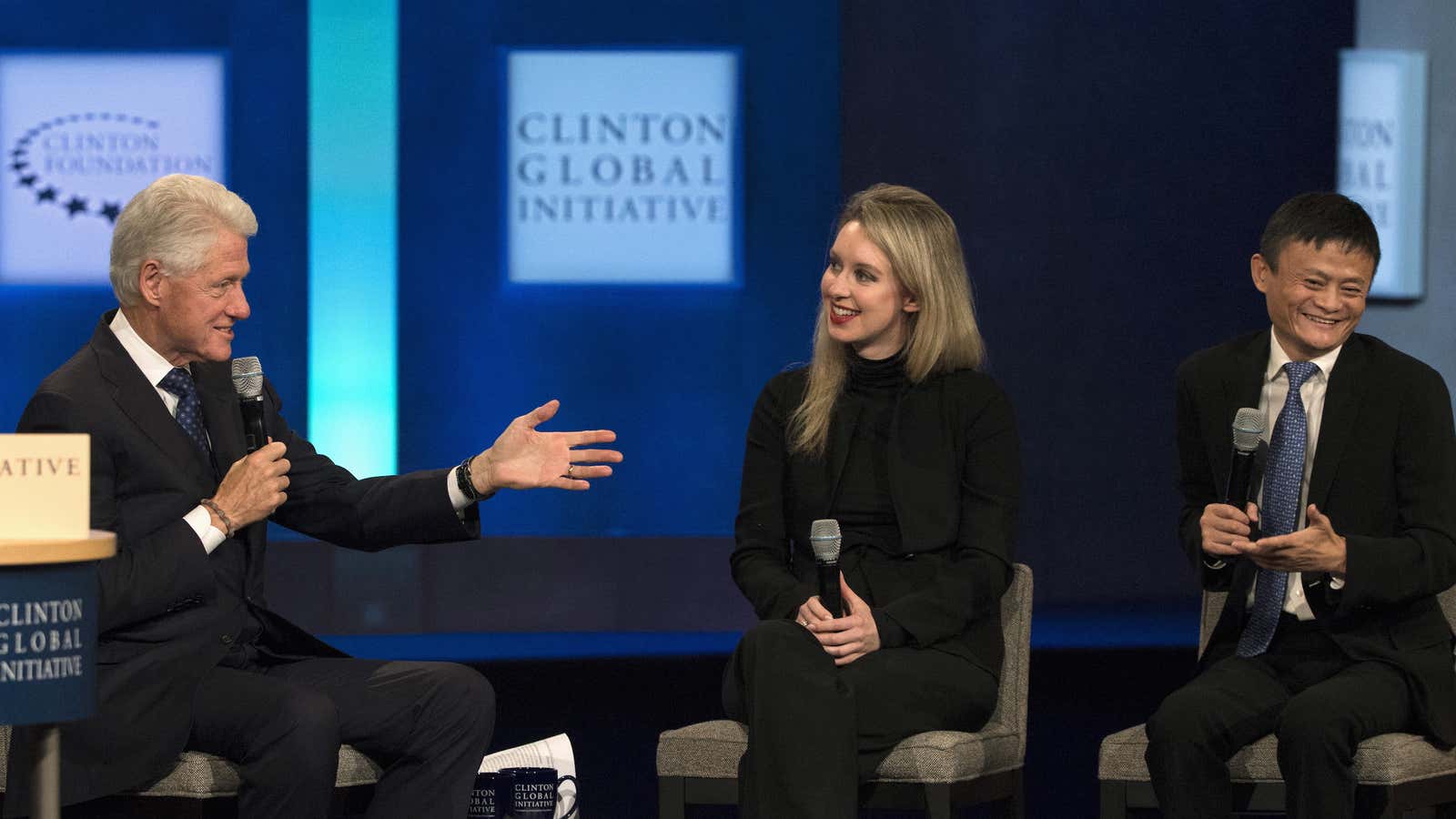Theranos, a Palo Alto-based blood testing company now valued at roughly $9 billion dollars, has become something of a Silicon Valley darling since its founding 12 years ago, thanks in part to a great backstory and a charismatic female CEO. But beyond its glossy public image, its work may not live up to the rapturous press coverage and billions of dollars in fundraising.
Details of the company’s “breakthrough advancements,” which include finger prick blood tests for hundreds of medical needs that are quicker and cheaper than tests using large vials of blood, have always been secretive and vague. To probe further, Pulitzer prize-winning investigative journalist John Carreyrou spoke extensively (paywall) to four former employees of the company and reviewed internal emails, as well as speaking to patients and health care practitioners who have had issues with the company’s tests.
He found that the company’s proprietary testing equipment (the “Edison”) only handles 15 of the more than 200 of the tests the company does, and less than 10% of total testing done in 2014 according to an anonymous employee. The rest are done on traditional machines.
Many of the tests the company does use large samples drawn from veins with a needle rather than “a few drops of blood” as the company has described in the past. For others using small amounts of blood, the company apparently uses a dilution method to run the tests on traditional machines, which could potentially increase error, according to UCSF professor Timothy Hamill, who spoke to Carreyrou.
In particular, diluting finger prick samples has been problematic because the samples are less pure in the first place than those from veins, according to unnamed employees cited in the Wall Street Journal.
The company also allegedly manipulated the so called “proficiency testing process” that the Centers for Medicare and Medicaid Services (CMS) uses to ensure test accuracy and accredit labs, according to the piece. The New York State Department of Health confirmed to Carreyrou that it received a formal complaint on the company’s practices and passed it along to the CMS.
Even though the Edison and traditional machines produced different results in several cases, the company’s COO allegedly told employees to only use instruments from other companies for proficiency testing samples, which may be a regulatory violation.
Employees are also reportedly concerned about the accuracy of tests done on the Edison, which the company concedes has produced results that differ from those on traditional machines. There have been complaints from physicians as well, including some cited by the Wall Street Journal.
Though a company lawyer confirmed that the firm isn’t using the device for all tests, it released an aggressive statement countering the piece, calling the article “factually and scientifically erroneous and grounded in baseless assumptions by inexperienced and disgruntled former employees and industry incumbents.”
The company told the Journal that it abides by federal regulations and hasn’t exaggerated claims, though it declined to detail the tests the Edison handles, saying they were trade secrets. The company received its first FDA clearance for a test on the device this summer.
Theranos claims in its statement that it presented the Carreyrou with over 1,000 pages of documents and statements that “directly refute these false allegations.” It adds that “stories like this come along when you threaten to change things, seeded by entrenched interests that will do anything to prevent change.”
It fought the paper throughout the investigation, visiting some providers and patients and asking they sign statements saying the Journal mischaracterized what they said. Two of those people did so; one refused.
There is some limited data on the company’s tests of its products available on the site, but it lacks needed detail to draw any meaningful conclusions.
If even a portion of the Wall Street Journal’s findings are true, it would be quite damaging, obliterating the company’s purported technological edge and the reasoning behind its sky-high valuation. Already Theranos appears to be tinkering with how it defines itself.
In Silicon Valley, where startup funding travels at lightening speed, it’s a warning sign that the latest hunger for healthcare companies may be getting ahead of the products.
